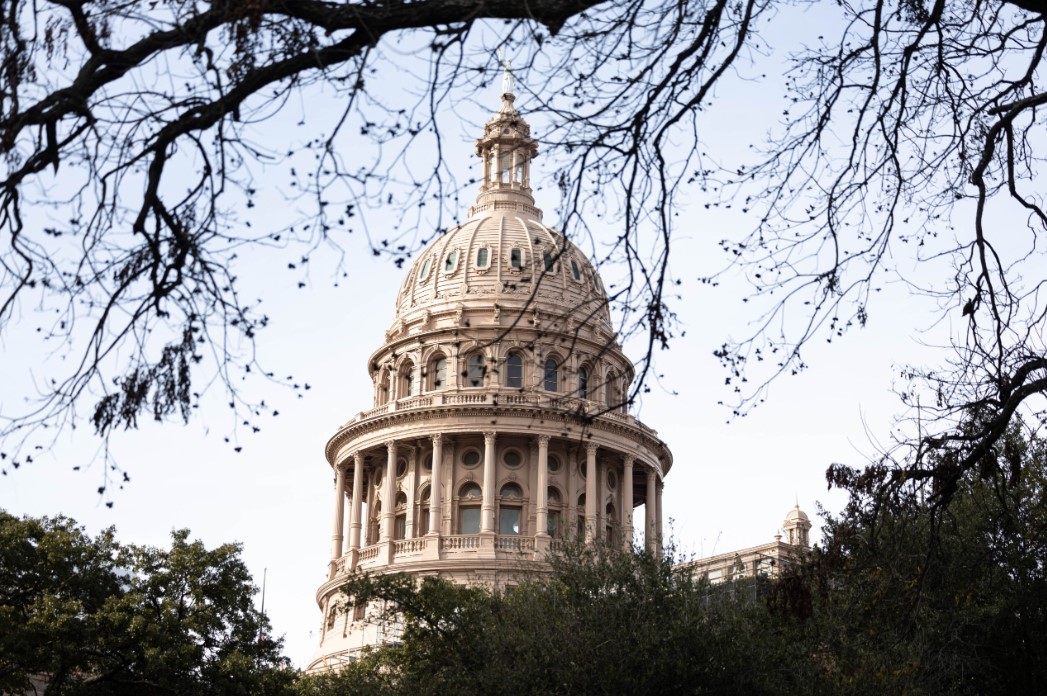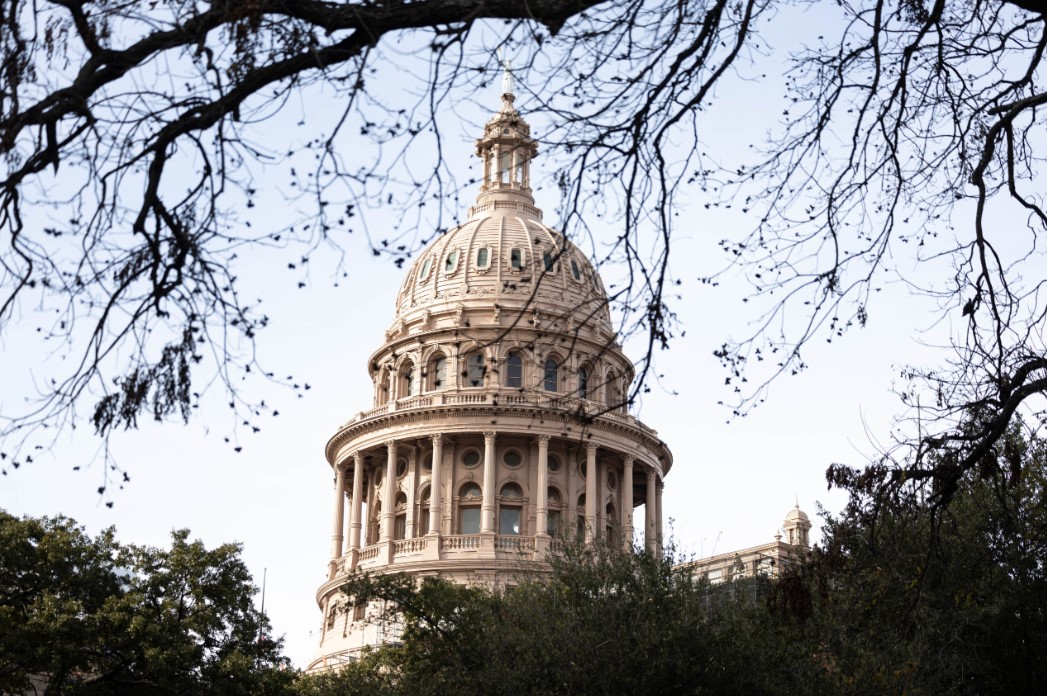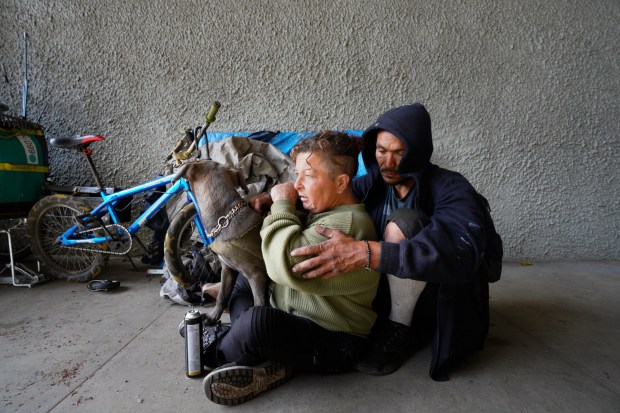

Patricia Lim | KUT News
A Texas bill awaiting the governor’s signature could reverse the effects of a court ruling that requires prosecutors to go through a state agency before bringing criminal charges against politicians accused of certain ethics law violations.
The Texas Court of Criminal Appeals – the state’s highest criminal court – ruled last September that the Texas Ethics Commission had exclusive jurisdiction over certain campaign ethics and finance laws. The case centered on Robbie Gail Charette, a Washington County politician accused of errors related to campaign finance and political advertising.
In practice, the ruling meant criminal prosecutors had to seek permission from the ethics commission before indicting politicians and lobbyists who ran afoul of these laws. Senate Bill 1220 would effectively undercut this ruling by clarifying the law, according to legal experts who spoke with Houston Public Media.
“Unless expressly provided otherwise, the exhaustion of civil, including administrative, remedies is not a prerequisite to the vesting in a trial court of subject matter jurisdiction over a criminal action for which the trial court would otherwise have jurisdiction under other law,” the bill reads.
A similar measure, Senate Bill 987, was passed in the Texas Senate in March, but did not make it to a vote in the House before the end of the legislative session Monday.
SB 1220 was authored by Sen. Bryan Hughes, a Mineola Republican, and co-authored by Sen. Brian Birdwell, a Republican from Granbury. The bill passed each chamber in the legislature late last month by more than a two-thirds majority. So if signed by Gov. Greg Abbott, it would take effect immediately instead of on Sept. 1.
Andrew Cates, a Texas ethics lawyer who represents clients before the Texas Ethics Commission, said that under the Charette ruling, the ethics commission’s administrative process had to be exhausted before criminal charges could be filed.
“This bill essentially reversed that to say that if there are criminal penalties involved, you don’t have to exhaust all of those remedies at the commission,” he said.
Houston-area impacts
The Charette case, which originated in a small town northwest of Houston, has been making its way through the courts system since 2018. In late April, the Texas Court of Criminal Appeals reheard the case, but has yet to make a final ruling.
After Senate Bill 1220 was passed by Texas lawmakers, State Prosecuting Attorney Stacey Soule, who requested the rehearing, submitted a brief arguing the case was now moot.
“S.B. 1220 codifies precisely what the State Prosecuting Attorney has urged this Court to require: clear and express language before a court may find that exclusive jurisdiction has been conferred upon an administrative agency,” she wrote in the brief.
Charette’s attorney, Lewis Thomas, declined a request for comment from Houston Public Media about the bill.
The measure could also have implications for a court case playing out in Houston’s southwest suburbs.
Fort Bend County Judge KP George was indicted last fall after accusations surfaced that he worked with a staffer to fake racist attacks against his own campaign on social media.
George’s attorney argued the county district attorney’s office should have received permission from the Texas Ethics Commission before bringing charges against him.
The county judge was later arrested on money laundering chargeswhich he said stemmed from a legal loan to his campaign. His attorneys have argued that case also should have first been referred to the ethics commission.
Jared Woodfill, one of George’s attorneys, said he believes the bill cannot be retroactively applied to his client’s case.
“You can’t go back in time and undo something that wasn’t the law,” he said. “If a prosecutor was trying to use the law retroactively, I think that would be a big issue for the Texas Court of Criminal Appeals.”
Woodfill also expressed concerns that the bill would enable politicized prosecutions.
“I think the problem with the legislation is that ultimately it allows renegade or rogue prosecutors to use the Texas Election Code in an effort to impact an election,” he said.
Wesley Wittig, a spokesperson for the Fort Bend County District Attorney’s Office and the Second Assistant District Attorney, said he believes SB 1220 could be applied retroactively. He also praised the short turnaround time for the bill’s passage.
“I think that speaks volumes as to how erroneous the court’s opinion was in the minds of everybody,” he said.
Supporters of the original Charette ruling have argued it only applied to a narrow class of laws, which rarely reached the level of criminal misconduct. Charette’s attorney noted in a brief that several district attorneys – including Fort Bend County District Attorney Brian Middleton – have failed to comply with all ethics law requirements.
Wittig agreed that many violations don’t rise to the level of criminal intent – but he argued that prosecutors still shouldn’t have their hands tied when it comes to prosecuting more serious offenses.
“That should not apply to every violation under the elections code when you have criminal conduct,” he said.
David Kwok, an associate professor at the University of Houston Law Center, said it’s not unusual for two agencies to be able to take enforcement actions at the same time – for example, both federal and state governments can administer certain laws.
SB 1220 gives prosecutors more discretion, Kwok said, but that doesn’t mean they’ll oversee every case.
“While this gives more flexibility to criminal prosecutors, I think in the end, they still want to coordinate with other entities,” he said. “We can’t have everybody handling every single case.”



